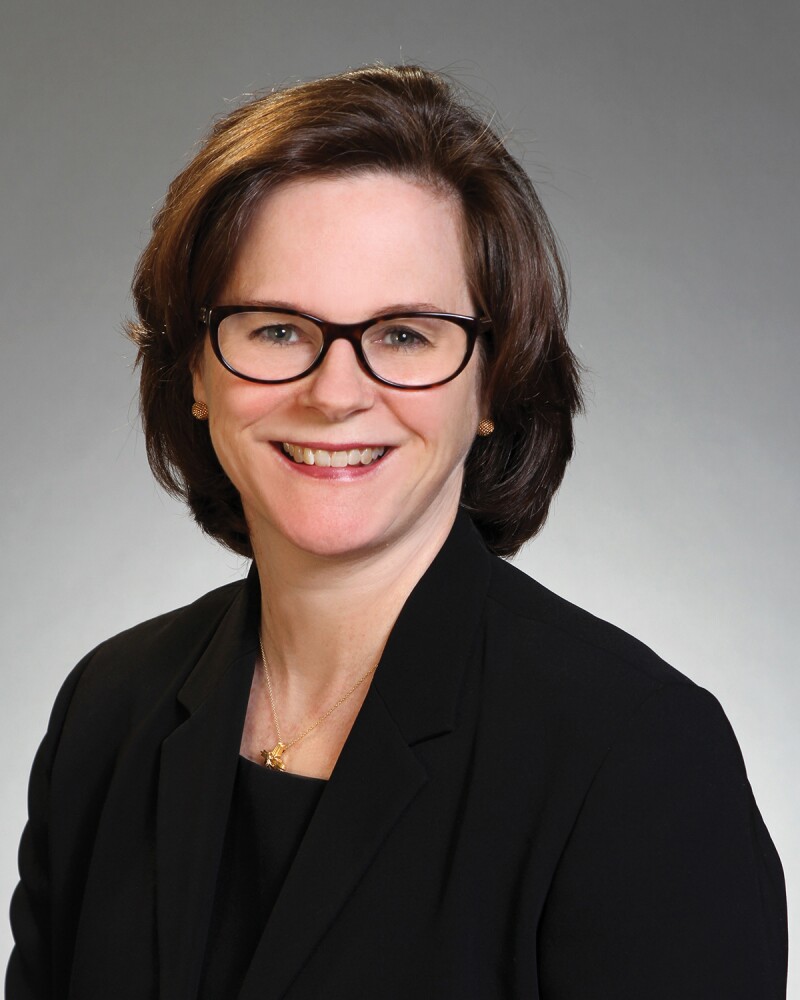
Denise DeFranco says that one of her main goals as AIPLA president is to make sure that members’ voices are heard in the debate about the development of IP laws around the world. To this end, she encourages members to get involved in the committees.
“One of the things that I’ve learned in my many years as a member of AIPLA is that you really can make a difference in the direction of policy in the US and abroad by getting involved in the committees,” she says. “The committees develop positions on pending rules and laws, court cases, and ultimately all the activities of the committees feed up to the Board, which in turn finalizes the policy statements that AIPLA submits.”
She continues: “The genesis of these positions really come from this committee structure, and I encourage everyone to take advantage of the opportunity – every single member can impact policy if they get involved. When I first joined, it took me a while to learn that even little old me could have an impact.”
DeFranco is a partner at Finnegan. Before entering private practice, she was a USPTO examiner and clerk to Judge Paul Michel.
DeFranco explains that her first AIPLA committee was the Amicus Committee. Some of the notable briefs that she worked on as a committee member include Bilski at the panel level, the Philips claim construction case, Merck v Integra, concerning interpretations of the Section 271(e)(1) safe harbor for infringing activities related to obtaining FDA approval, and her first AIPLA amicus brief in KP Permanent v Lasting Impression I, a 2004 Supreme Court trademark case.
For many AIPLA members, especially those practicing in the US, this involvement may be of particular importance given the many changes and debate about issues such as Section 101 and the new procedures at the PTAB. DeFranco says that the growth in the number of cases applying Section 101 has given AIPLA a real opportunity to weigh in on this important subject. Similarly, as the USPTO continues to revise rules and regulations to make the PTAB proceedings fair and balanced, the Association will have a strong voice and providing its views on issues such as the ability to amend claims.
DeFranco also says that pending litigation about non-practicing entities could have a big impact on how litigation operates, and that it’s important that any changes made do not negatively impact how practicing entities use a system that for many years have for the most part worked very well.
“We don’t want to throw the baby out with the bathwater when we look to check the abuses,” she says. “However, for these other types of patent holders, their viewpoints can easily get lost in the discussions because of all the hoopla about NPEs.”
International issues are also on DeFranco’s agenda. She explains that that harmonization efforts will have a big effect on AIPLA members and that the Association is participating in continuing discussions with bodies such as Group B+ on issues such as patent grace periods.
“I think it’s important for AIPLA to stay involved in the worldwide harmonization dialogue and commit resources to that effort,” she says.
DeFranco says that she also plans to strengthen AIPLA’s relationships with publishers. Through the Special Committee on Publications, she says that the Association looks to foster and develop relationships with publishers and to work with them to publish more works that are of interest of not only of AIPLA members but also written by the members themselves.
One topic that came up during AIPLA’s bi-annual member survey is that there appears to be demand for more educational offerings about practice management – such as how to run law firms, how to handle practice-related logistical issues and how to nurture client relationships. DeFranco says that she was somewhat surprised by this request, especially given that these topics are not traditionally an area of focus for AIPLA. That said, she points out the Association’s membership is quite diverse, and there are many experienced solo practitioners and small firm practitioners who can help provide resources to meet this need.










